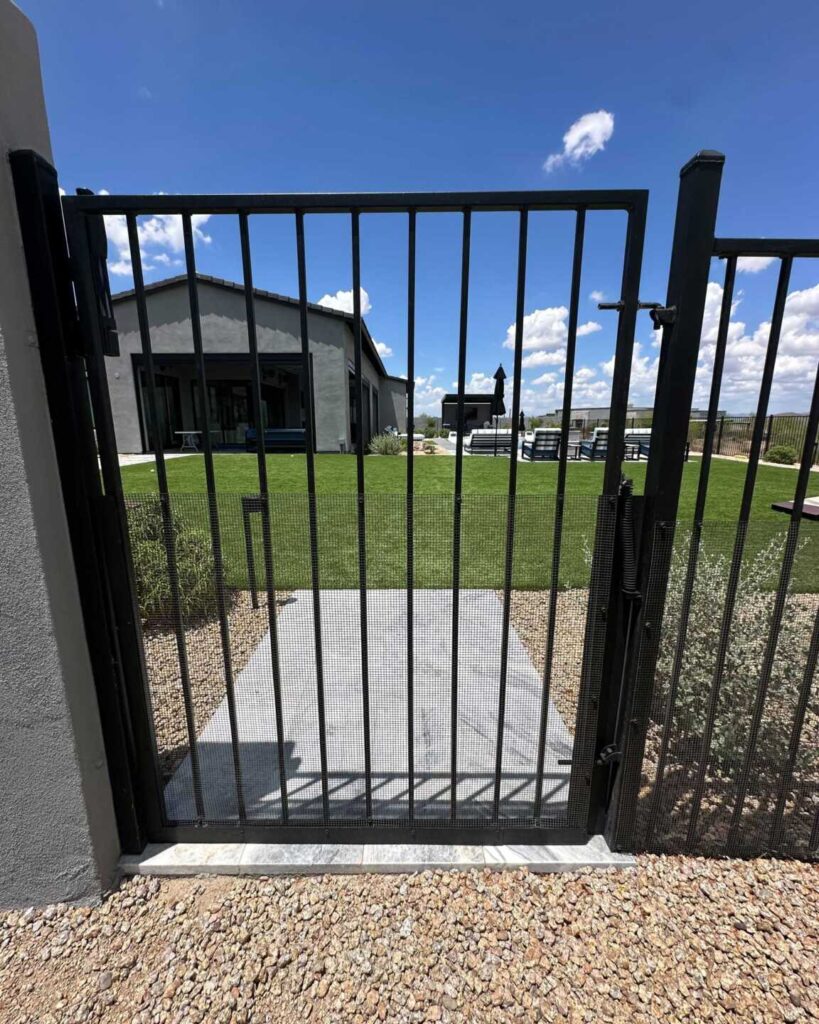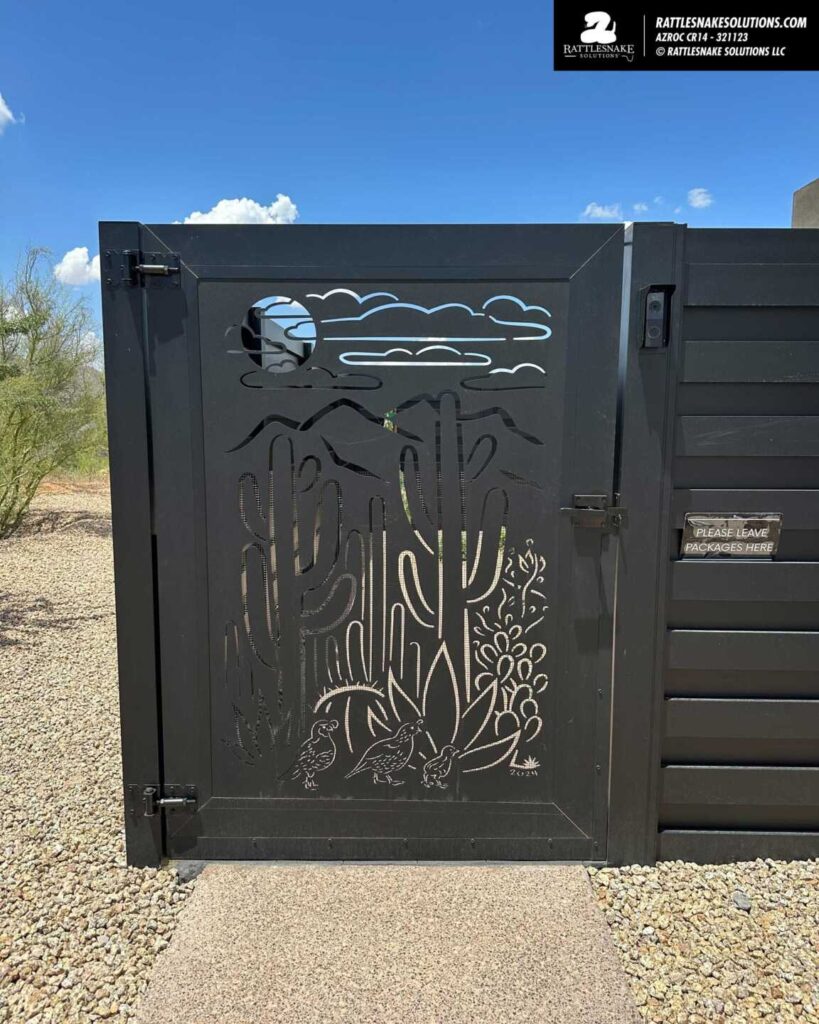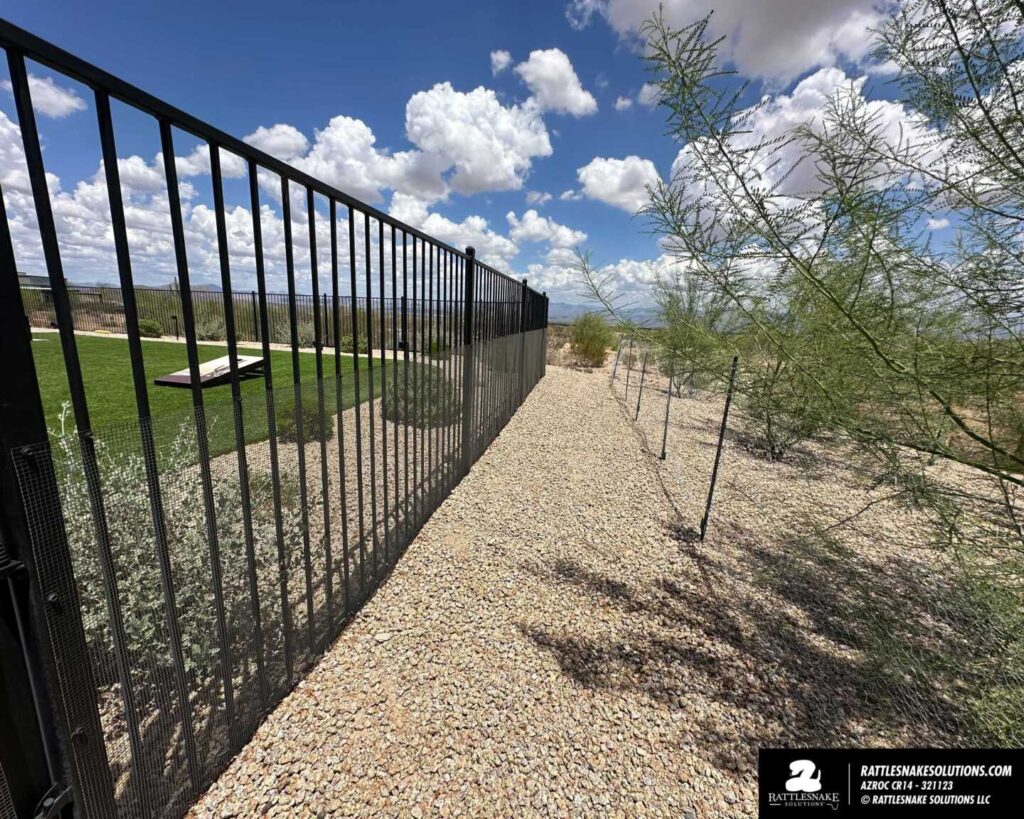Newly installed Rattlesnake Fencing to make some less stressful times on the patio.
More information on Rattlesnake Fencing: https://rattlesnakesolutions.com/keep-snakes-away/snake-fence.php?p=social
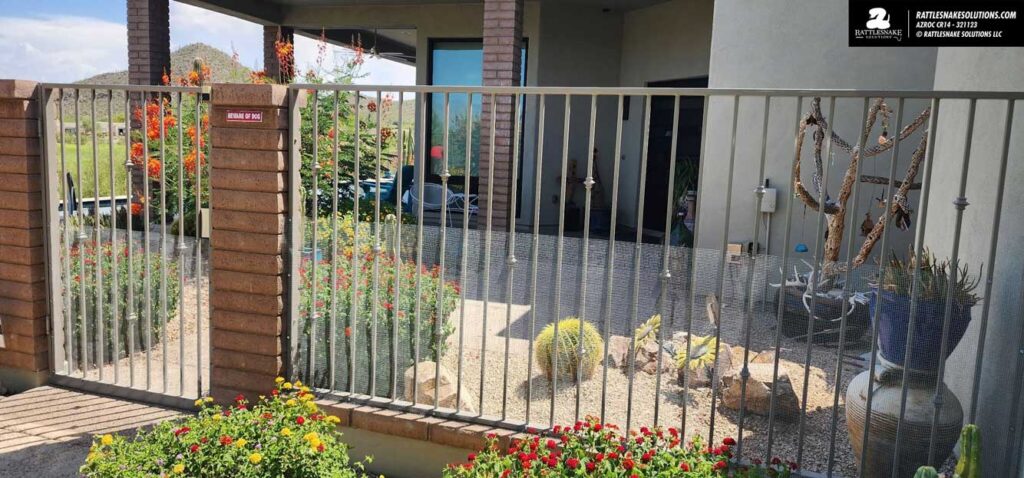
Newly installed Rattlesnake Fencing to make some less stressful times on the patio.
More information on Rattlesnake Fencing: https://rattlesnakesolutions.com/keep-snakes-away/snake-fence.php?p=social

A call came in for a pair of Western Diamondback Rattlesnakes at a property in Tucson. They were both resting alongside a planter box in the yard, likely taking advantage of the higher ambient moisture. Gary safely captured them and took them to a perfect spot within their estimated home range.
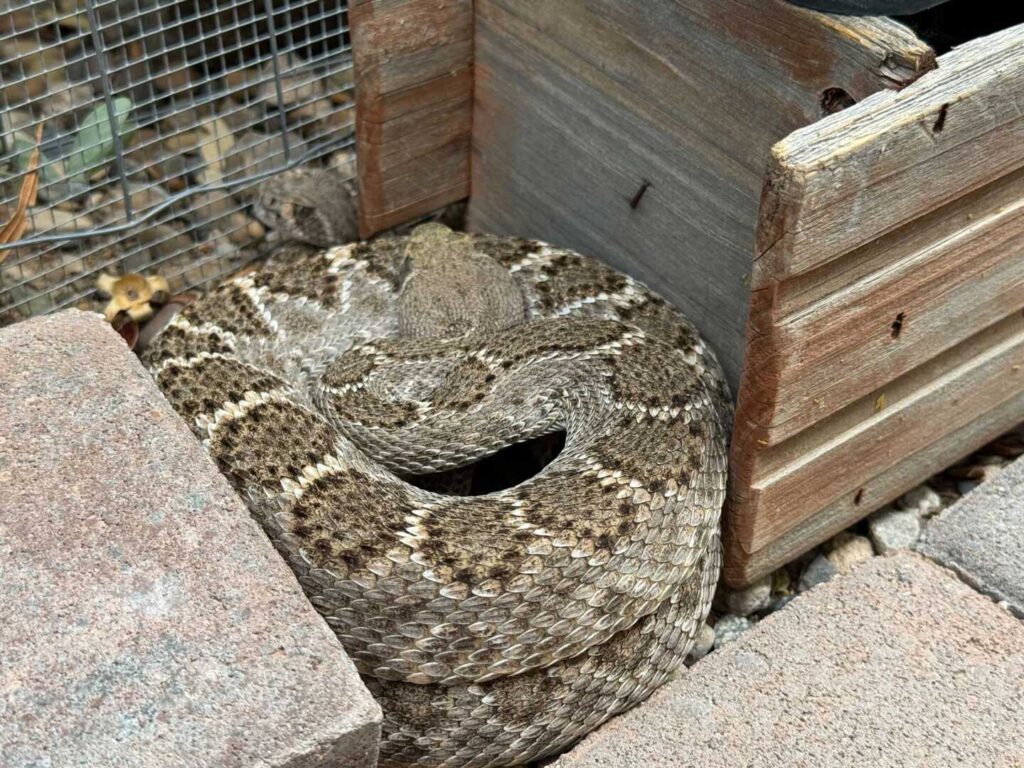
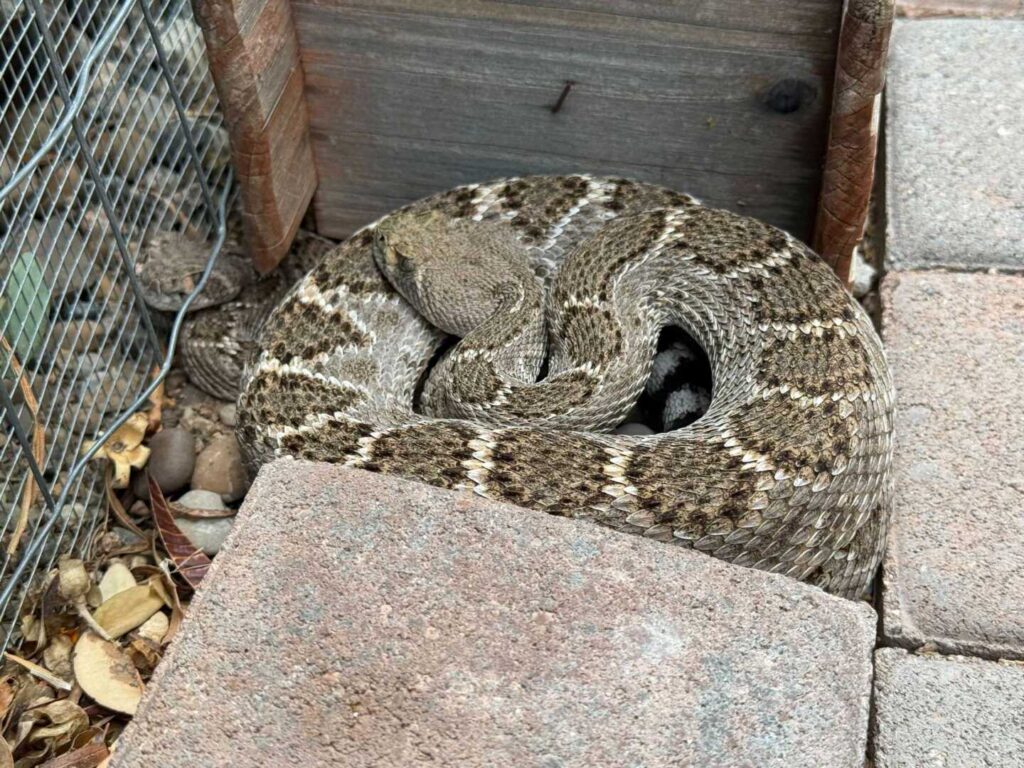
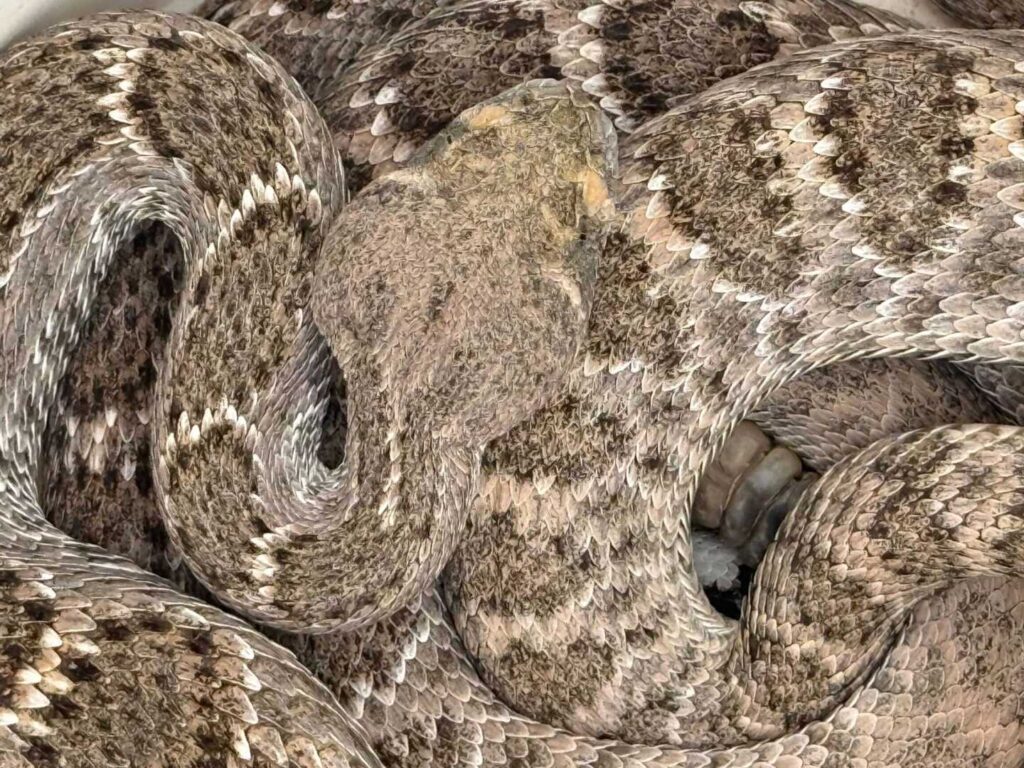
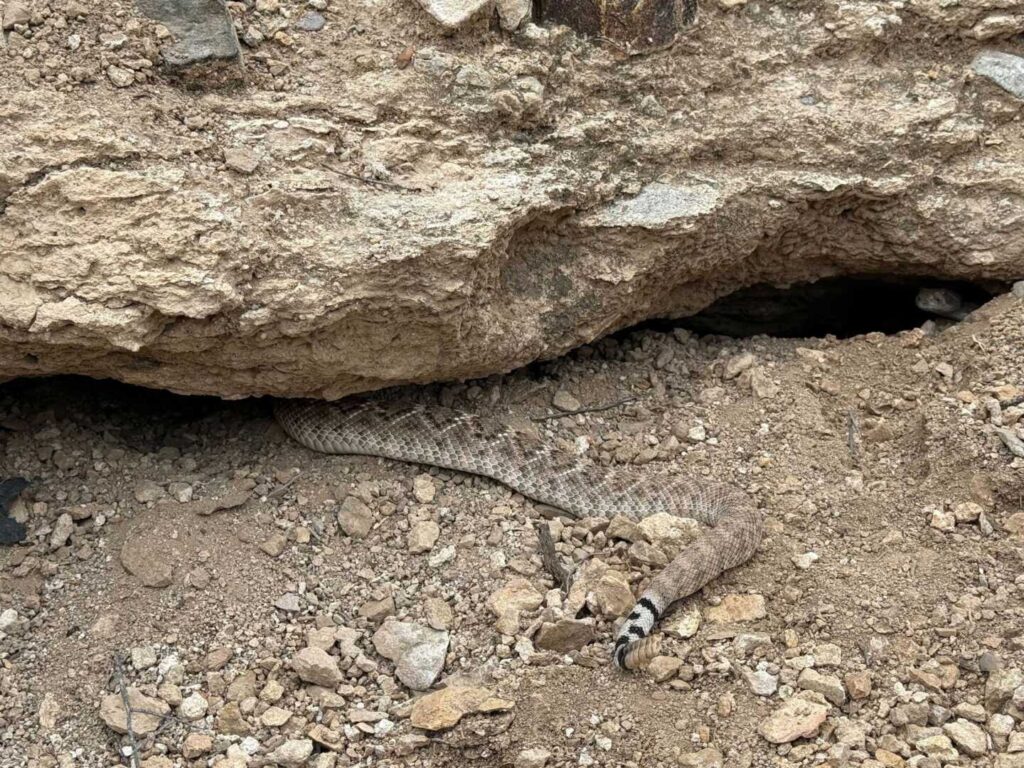
Michael and Josh did great with this decorative courtyard gate in Tucson! Without changing how it looks, the homeowners can worry less about a rattlesnake hanging out by the front door. Whew!
More information on Rattlesnake Fencing: https://rattlesnakesolutions.com/keep-snakes-away/snake-fence.php?p=social
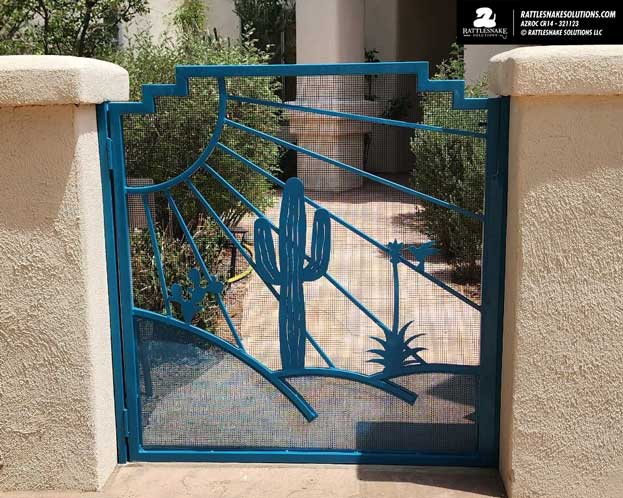
From the patio, it’s about invisible. The gaps in this view fence are covered with black mesh and buried into the ground to prevent rattlesnakes from getting in.
More information on Rattlesnake Fencing: https://rattlesnakesolutions.com/keep-snakes-away/snake-fence.php?p=social
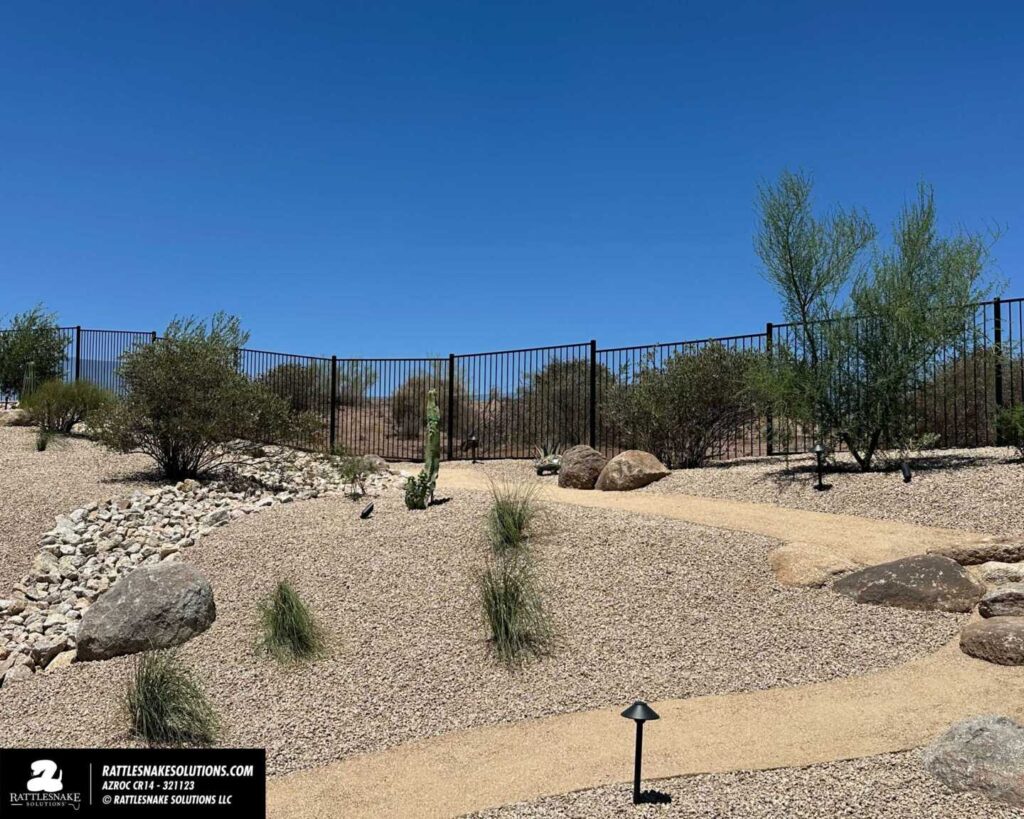
A Sonoran Gophersnake demonstrating why rattlesnake fencing is called, specifically, “rattlesnake fencing”. These snakes are excellent climbers, being able to articulate and climb even the most minor hold opportunities. This is also usually what we get if we have the conversation of “I know rattlers can climb a block wall, I’ve seen it before,” and there is actually a picture of the event. This snake was originally called in as a rattlesnake, for example.
Maggie helped it down and to a spot where it would be safe from the dogs in the yard.
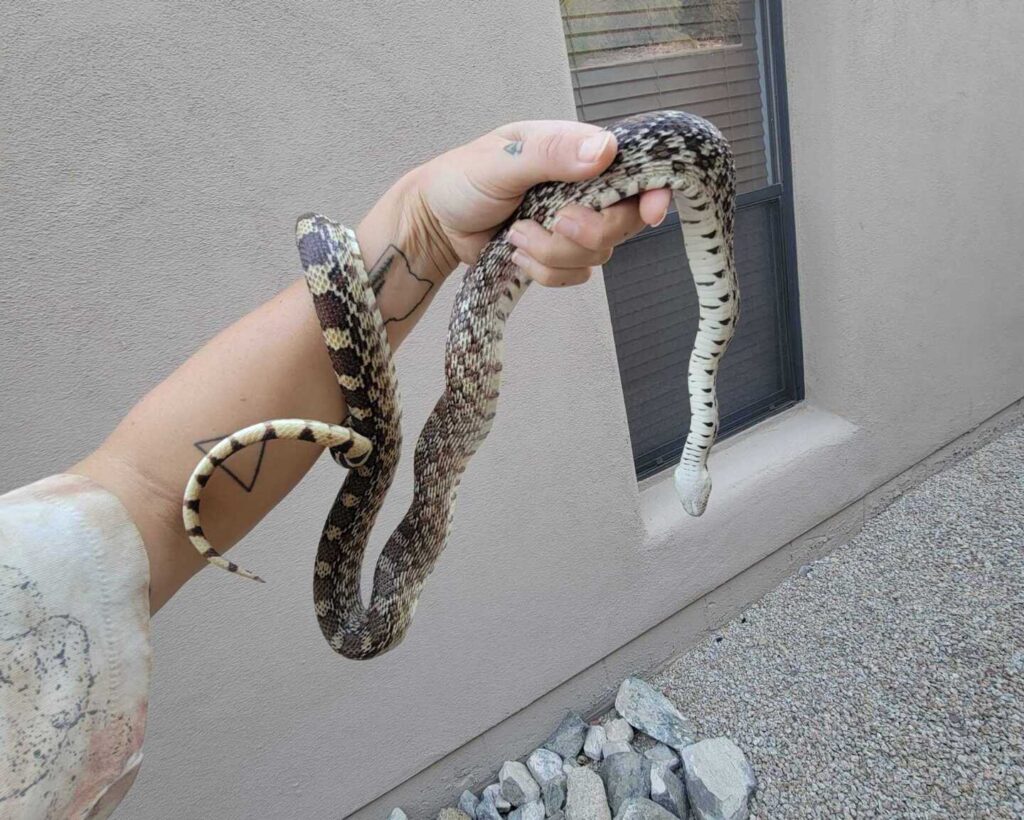
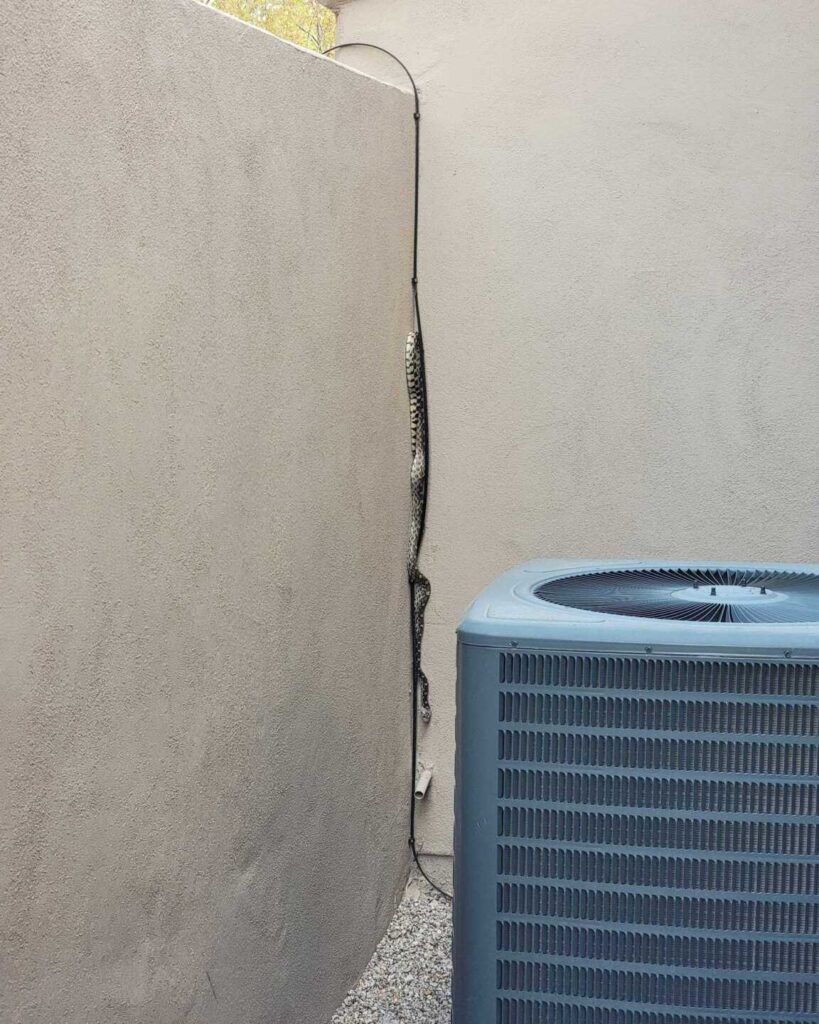
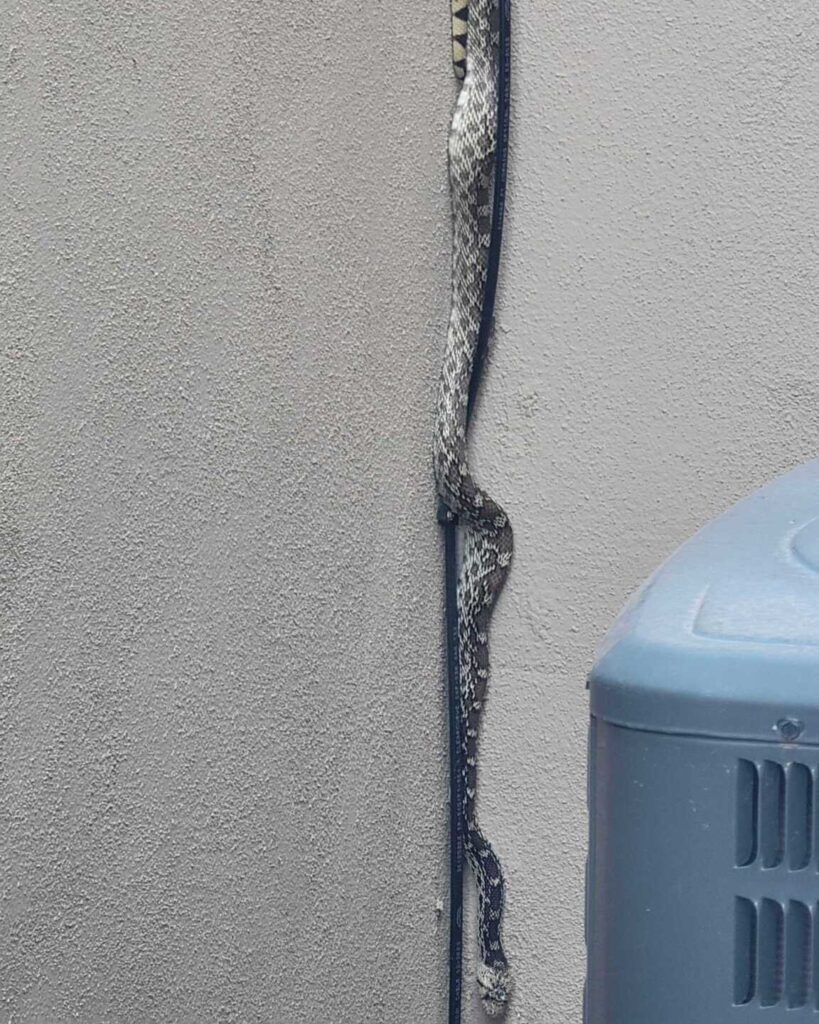
Another recent rattlesnake fencing project completed, making pool time a bit more relaxing than it was the year before.
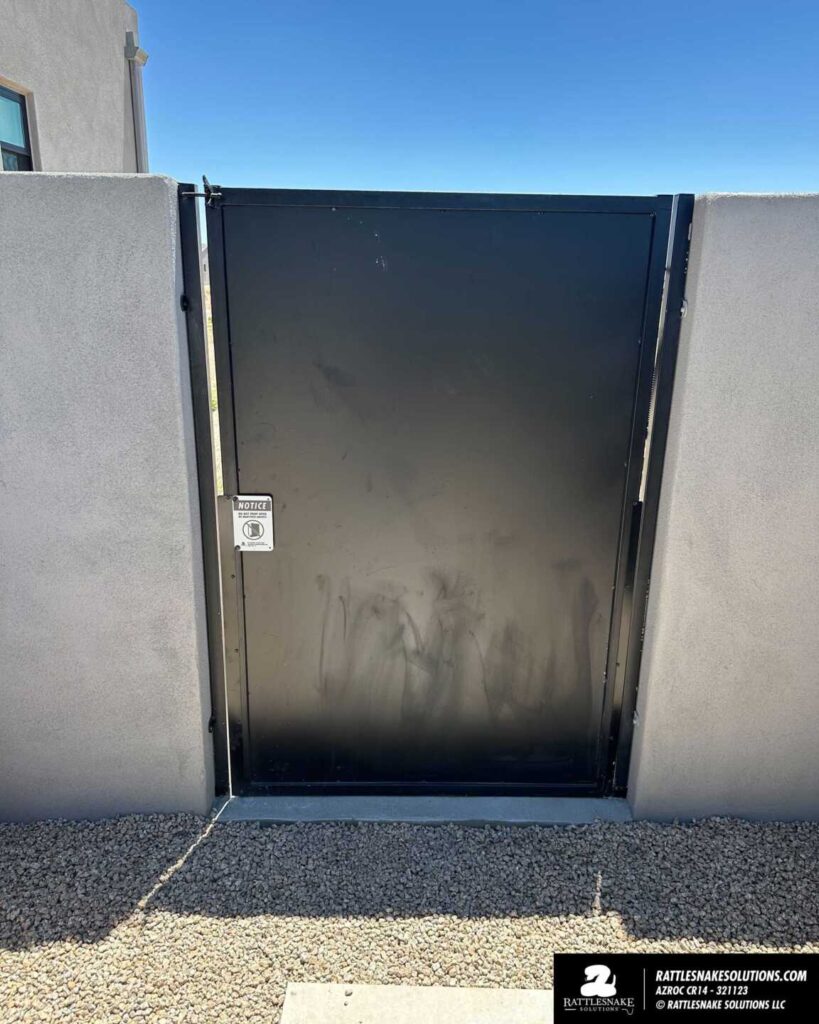
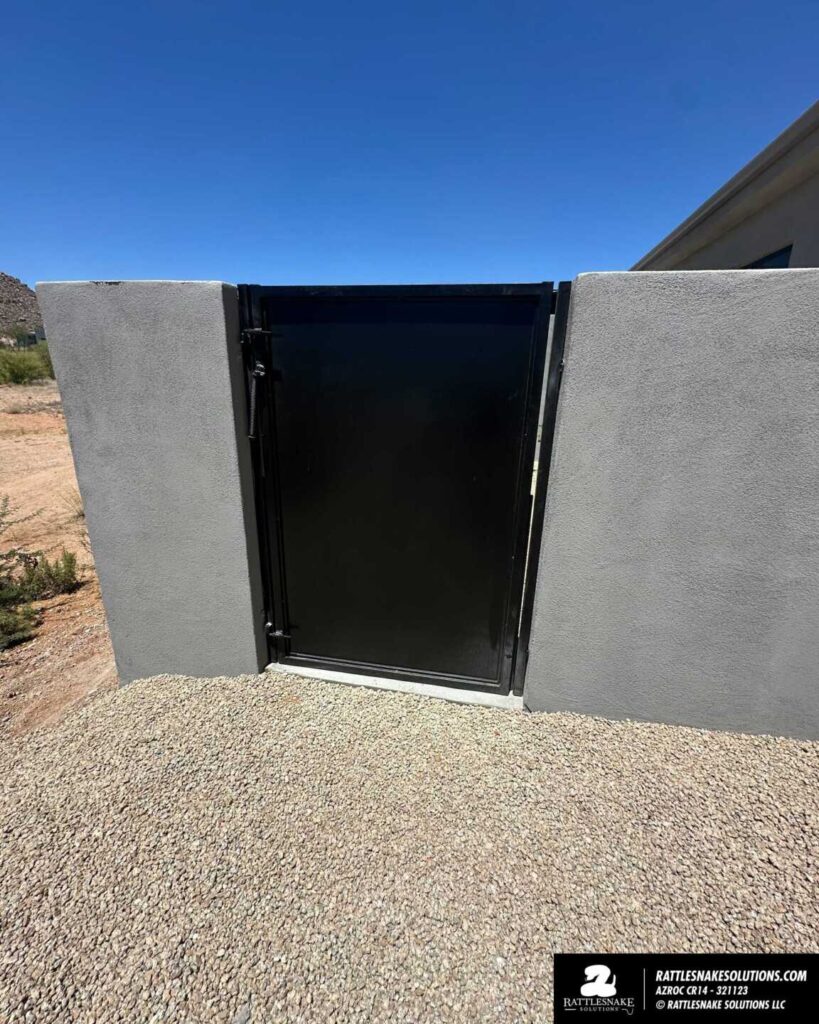
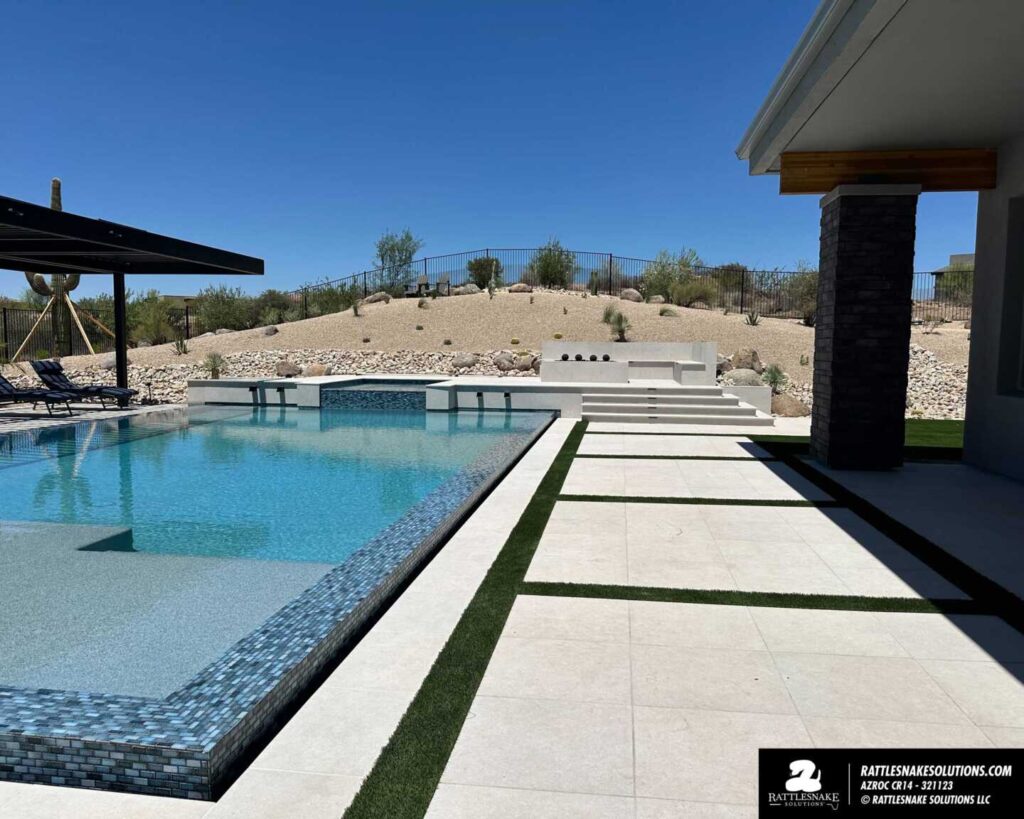
More information on Rattlesnake Fencing:https://rattlesnakesolutions.com/keep-snakes-away/snake-fence.php?p=social
Rattlesnakes can no longer access this shaded patio. There’s a lot to it, but a stress free summer is most important.
More information on Rattlesnake Fencing: https://rattlesnakesolutions.com/keep-snakes-away/snake-fence.php?p=social
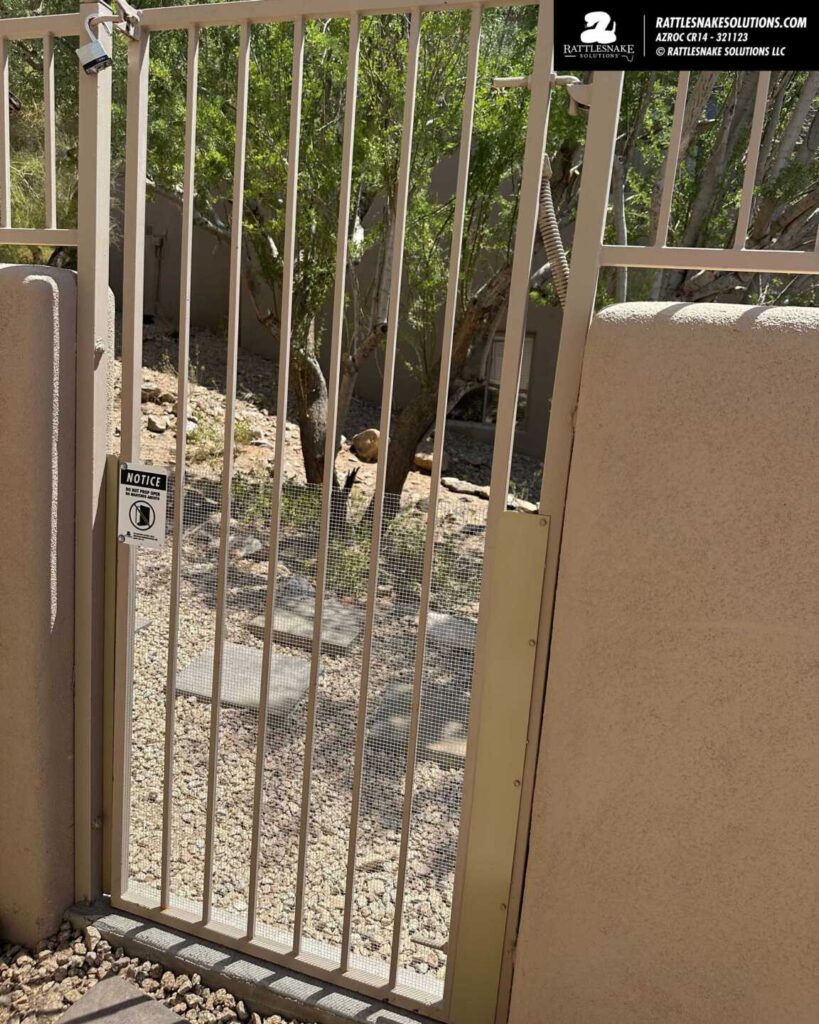
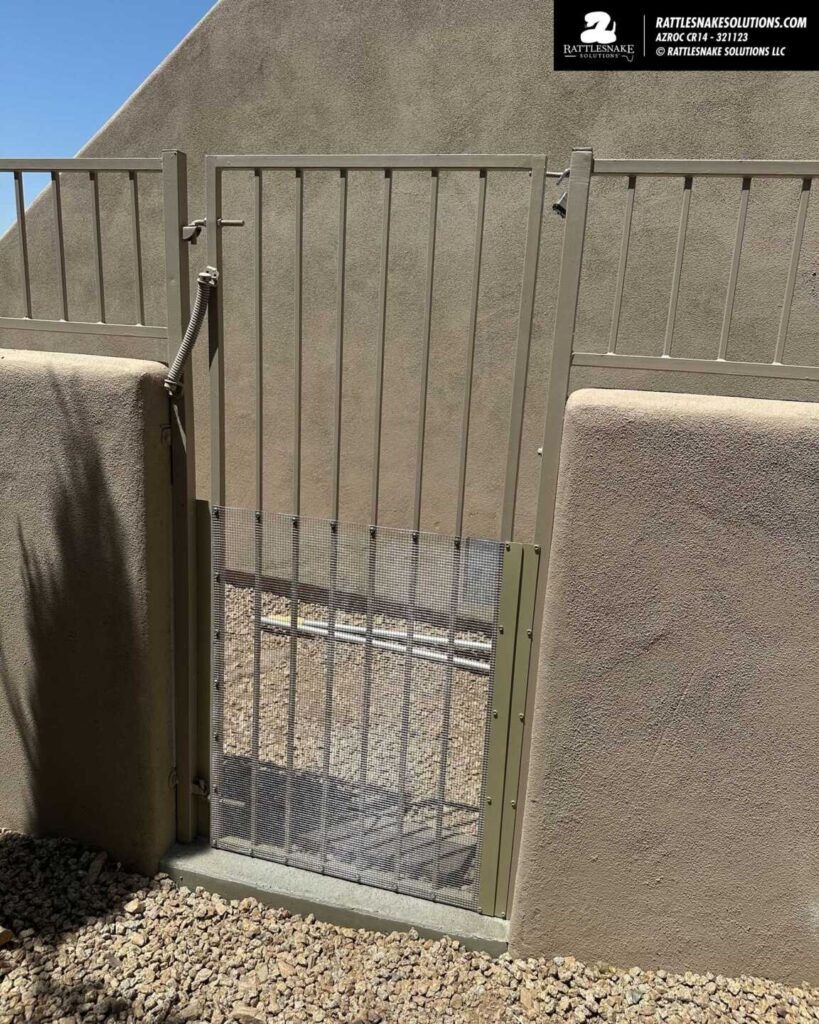
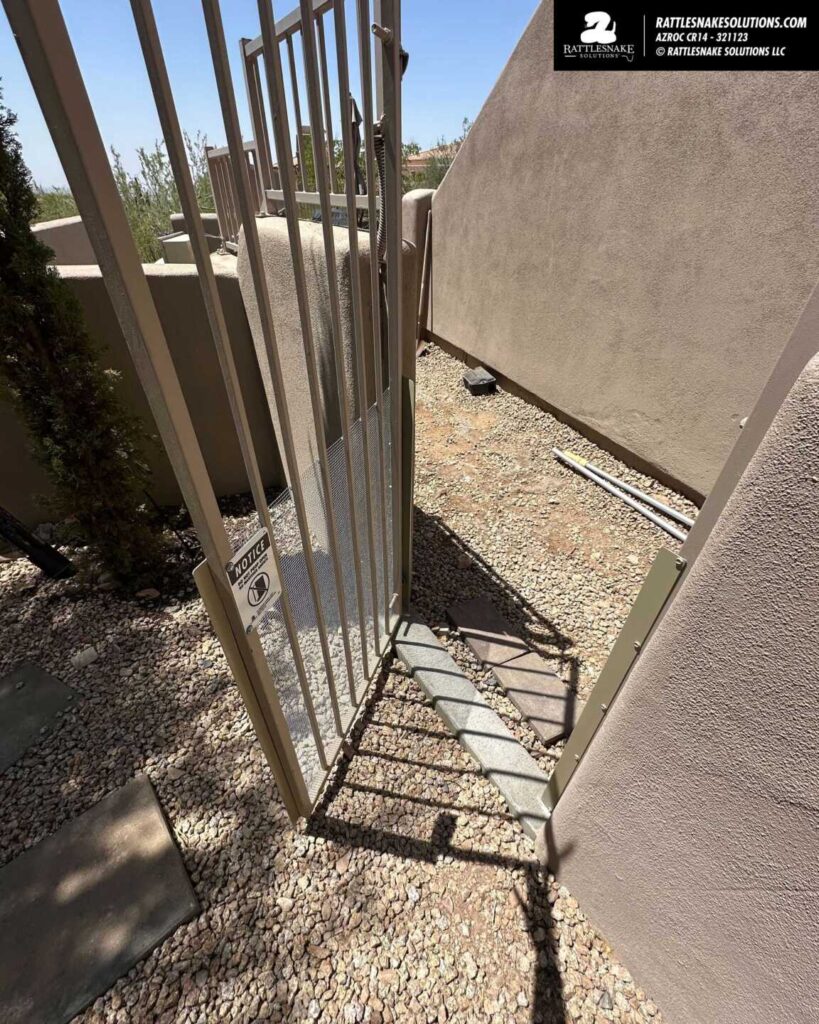
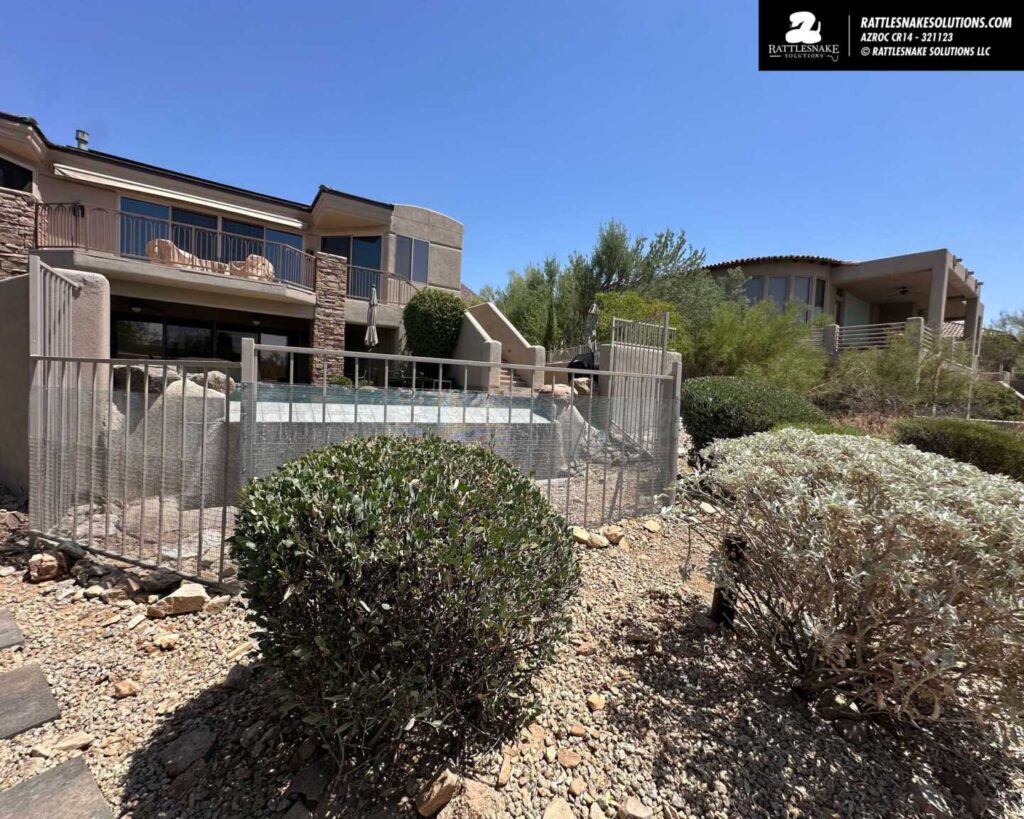
Another expertly installed rattlesnake fence by the crew! Thanks to Brent, Baylend, Mark and Ethan for their work on this one. Pool day just got less stressful for one home in Scottsdale.
More information on Rattlesnake Fencing:https://rattlesnakesolutions.com/keep-snakes-away/snake-fence.php?p=social
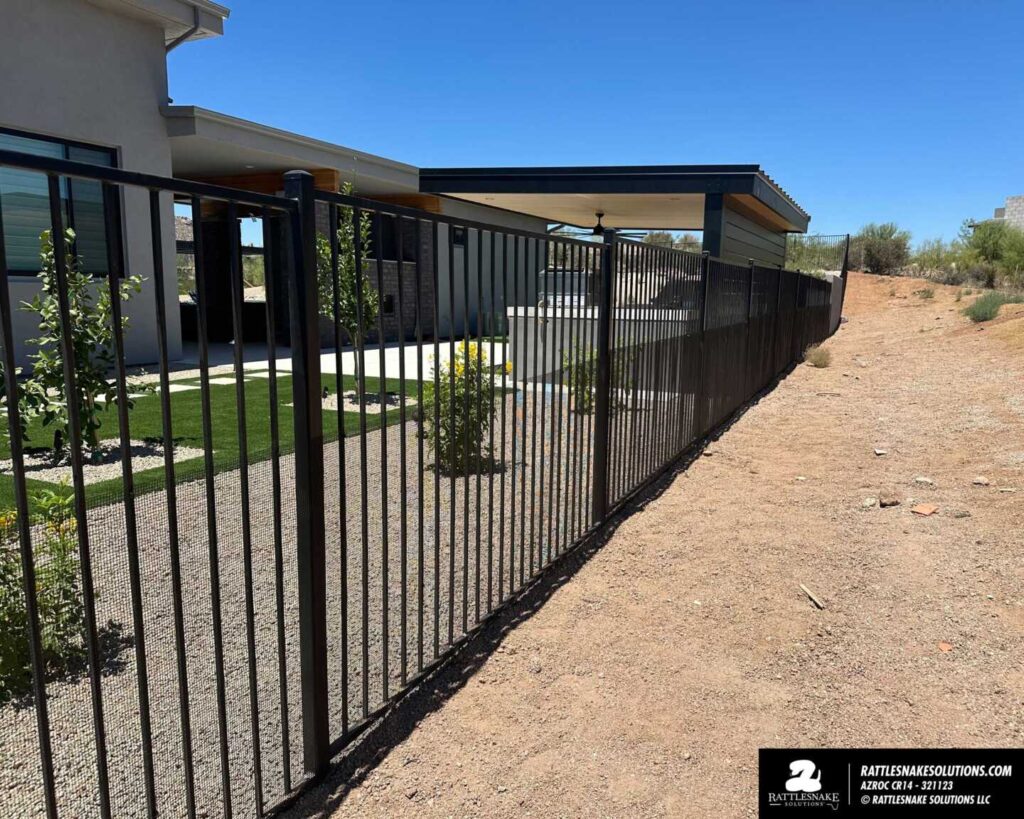
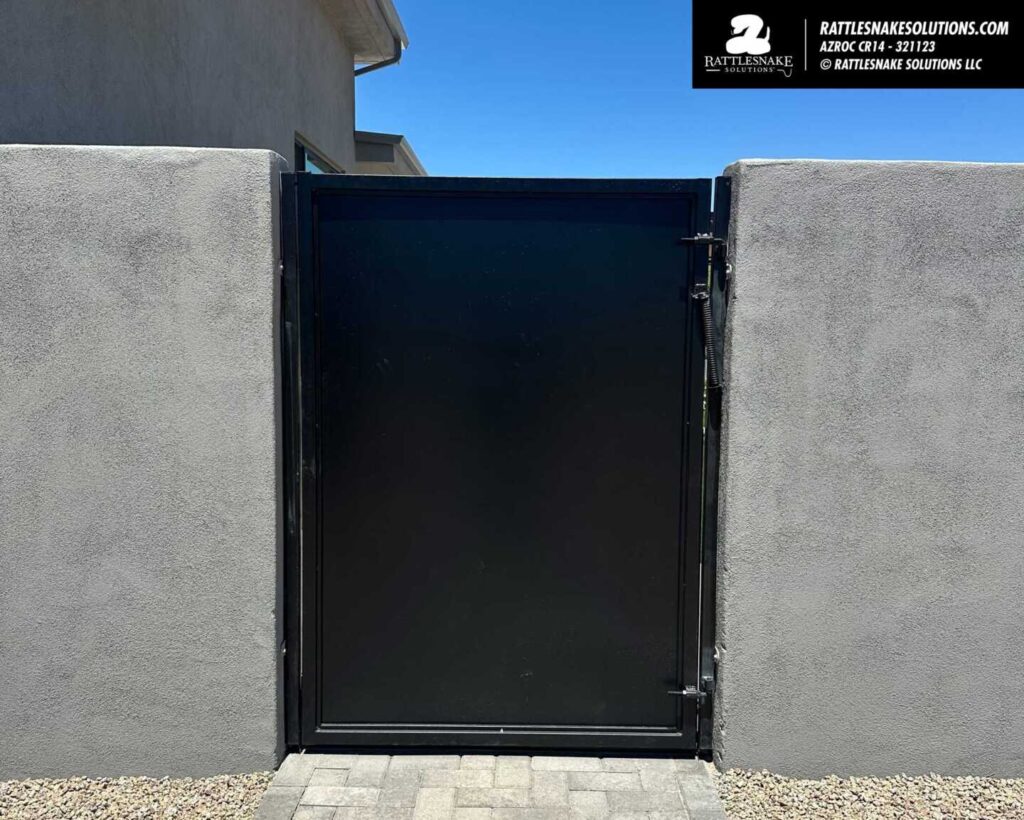
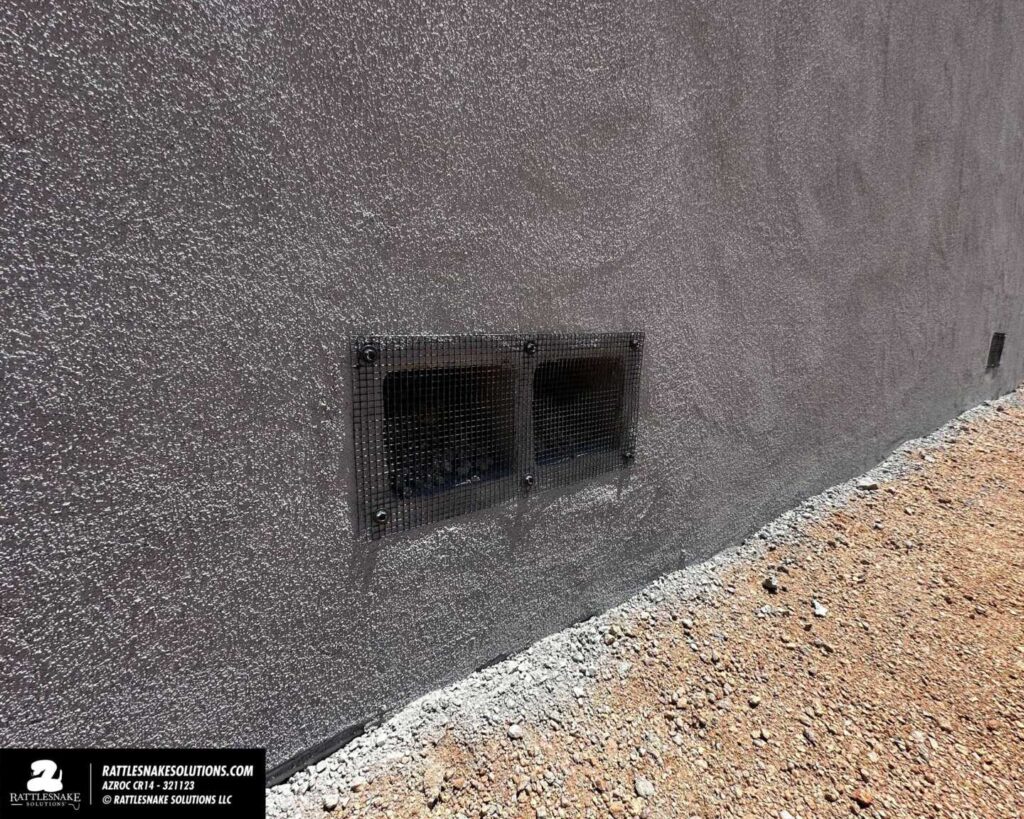
Addie was clearing a fence line to trench for a rattlesnake fence installation with Josh and Mike, and found a big Western Diamondback Rattlesnake under a bush in the work zone. With a lot of dense vegetation and water available, this wasn’t a surprise (and part of the reason our crew was out there to install a rattlesnake fence, of course). Mike safely captured and relocated the snake to nearby habitat so the installation could continue safely for all involved.
More information on Rattlesnake Fencing: https://rattlesnakesolutions.com/keep-snakes-away/snake-fence.php?p=social
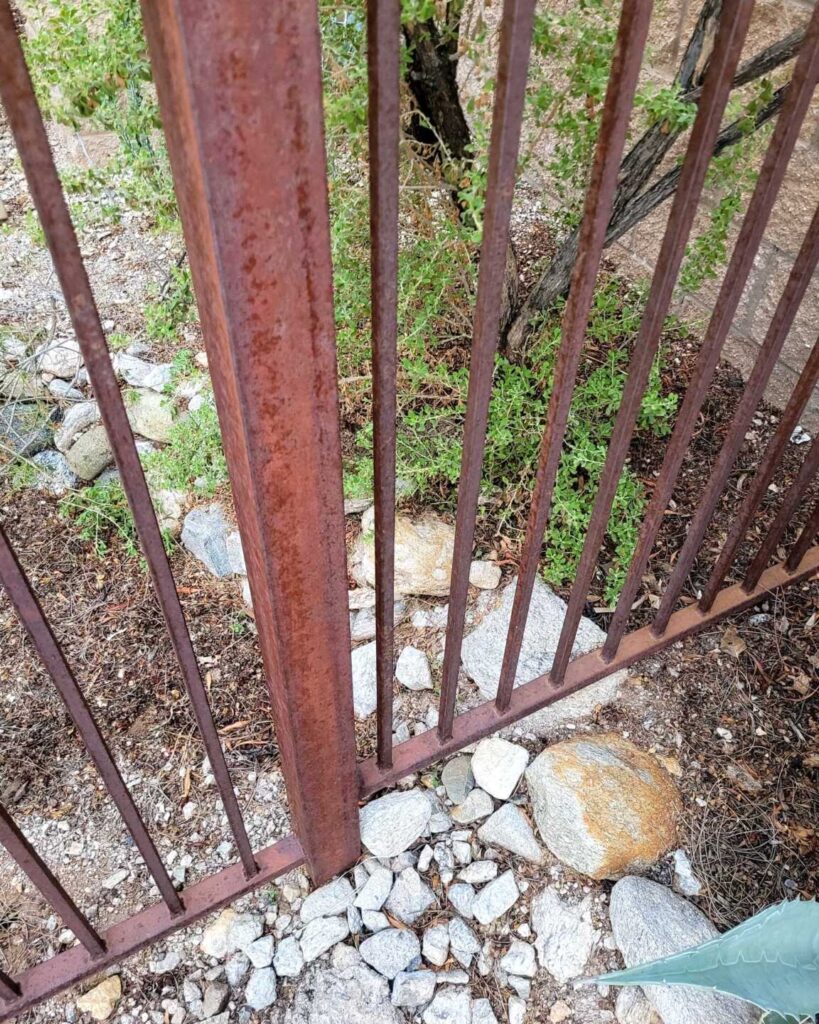
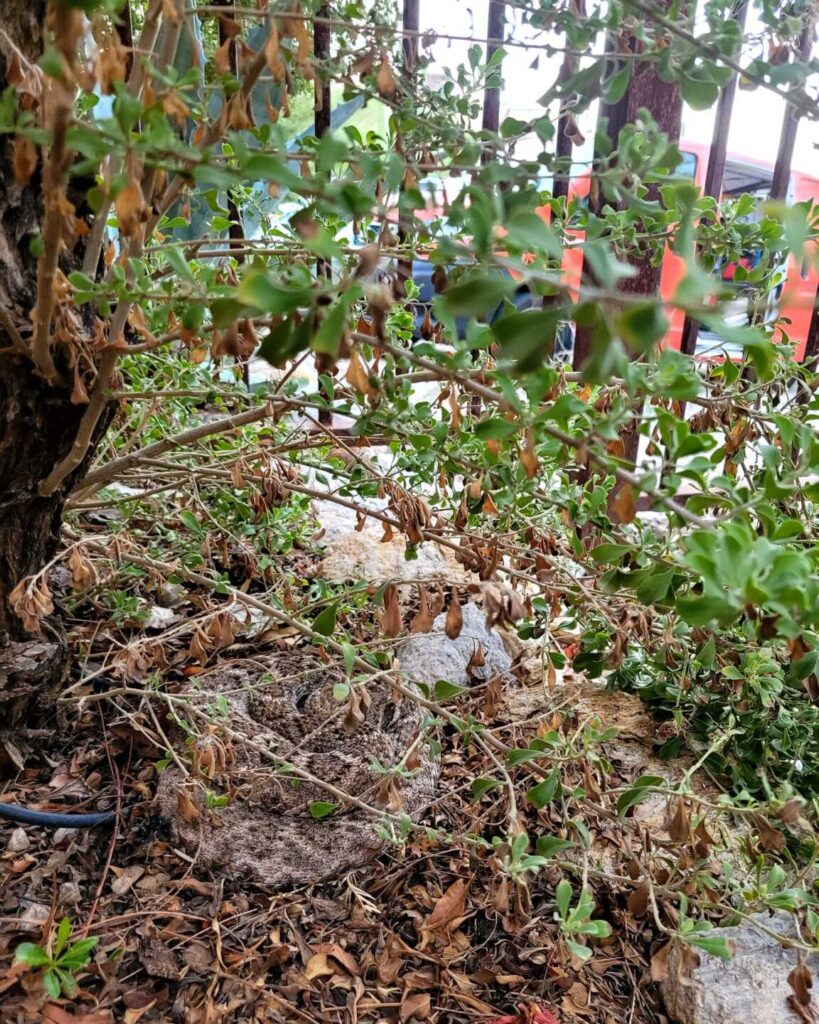
After finishing a snake fence installation, Addie was leaving and spotted this emaciated kingsnake crawling around a parking lot. It’s been a very hard summer for animals this year.
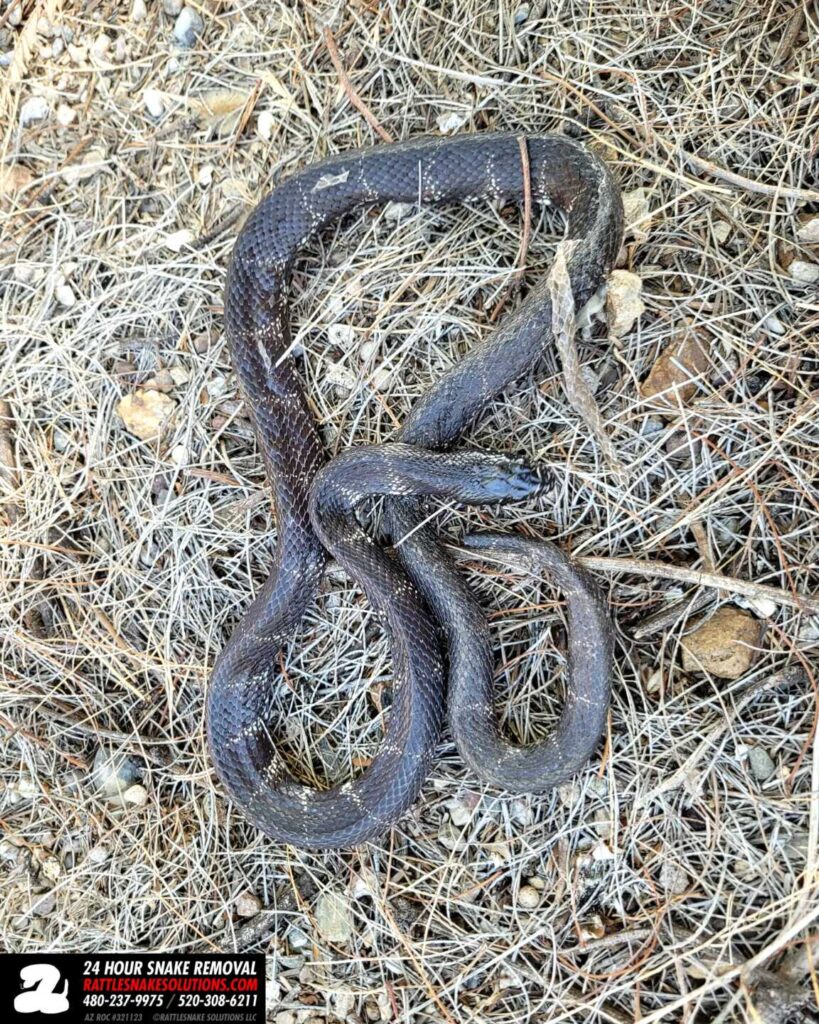
A new rattlesnake fence installation at this large property looking great! By great, we mean you can barely see it unless you’re looking for it.
More information on Rattlesnake Fencing: https://rattlesnakesolutions.com/keep-snakes-away/snake-fence.php?p=social
